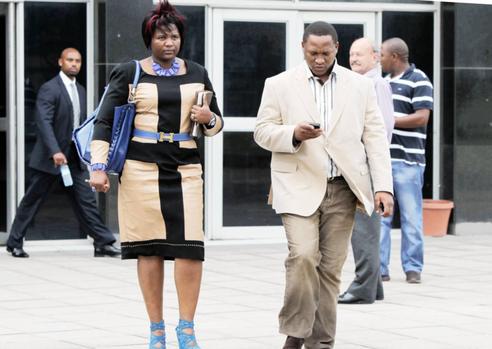Chronicles of a breast cancer survivor
Georgina Mushi is a survivor of the much dreaded disease, breast cancer.
Doctors dismissed her when she discovered a lump back in 2002. After over 10 years, she went to a different doctor and was diagnosed with breast cancer.
“Back in 2002, at just 27 years old, I discovered a lump in one of my breasts. I went to see a doctor even though the lump wasn’t painful. I was referred to a hospital in Johannesburg where a doctor told me I was too young to have cancer so I shouldn’t worry.
“Years passed and the lump grew bigger and wouldn’t go away. In March 2015 I went for a check-up at Helen Joseph Hospital and I was diagnosed with breast cancer. I was shocked, and very scared of radiation and the chemotherapy that would follow. After some time on treatment I became depressed. My hair started falling out and my skin and nails were beginning to change. I felt so ugly. I remember one day my friend brought me a wig to wear but when I put it on, I felt even uglier.”
She started treatment and was not sure about how she would feel after losing hair. Having one breast for her, meant she was less of a woman.
“In October 2015 I underwent a mastectomy – my left breast was removed. I remember going into the operating room thinking if I’d be able to look at myself after the op. I wondered how I’d feel about the scars after surgery, and if I’d be able to touch it. It was and still is the hardest thing for me to do. Now looking in the mirror and seeing only one breast is painful. A lot of people say having one breast doesn’t make you less of a woman, but I feel it does.”
Thanks to her family who supported her the entire time, feelings of negativity reduced.
“Fortunately, I had a very strong support system, thanks to my family and friends. My cousin took my children and me in and would care for my kids when I was sick. My mother and friends would call me daily to find out how I was doing, and they knew all my chemo dates. This helped me get over the negativity I was feeling.”
After about six months from when she started the treatment, she was declared cancer free.
“I was so happy when I became cancer-free in April last year. I’m grateful for overcoming cancer, although I’m now on hormone treatment that’s brought on menopause. The hormone therapy prevents me from producing eggs, though, that could cause the cancer to return.”
She encourages people not to give up as it is not a death sentence.
“I’d like to tell people who have cancer that they should trust their doctors and they shouldn’t rely on herbal medicines. The doctors know what’s happening and will help you. It helps to take everything as it comes: the treatments, the crying, all of it. What people need to know about cancer is that the illness isn’t discriminatory. It can happen to anyone of any age, with any family history and to any race. Most importantly, it is not a death sentence.”



